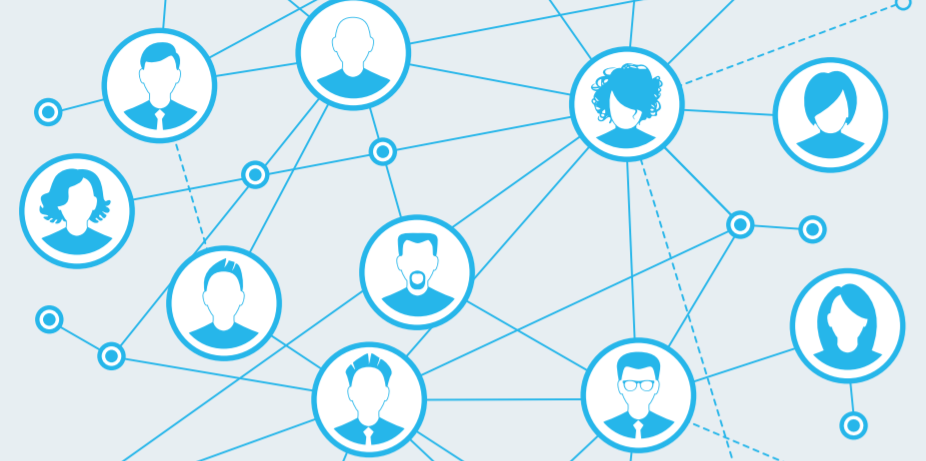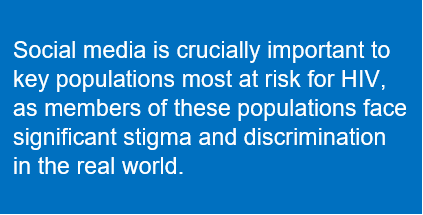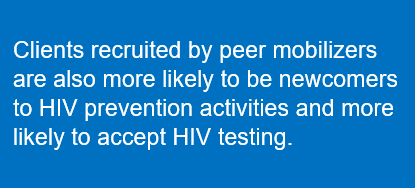Written by LINKAGES’ Hally Mahler, Eric Stephan, Matthew Avery, and Virupax Ranebennur
A version of this blog post was originally presented at FHI 360’s Global Leadership Meeting 2017 and USAID’s Global Health Mini-University 2017.

Read Part I of this three-part blog series here.
We have all heard how instrumental social networks can be in connecting people. But #10 – our nickname for the peer mobilizer mentioned in Part I – exceeded every expectation. Preliminary data analysis showed us that by the time most of our peer mobilizers had brought in 10 new contacts, #10 had brought in 71. At first, we were hesitant to believe it, but the numbers did not lie. And, #10 did not stop there – as recently as September 2017, he had successfully recruited a total of 240 clients to HIV testing, with an HIV-positive yield of nearly 15 percent.
#10 is what we like to call a super-mobilizer. As our program expanded within Chiang Mai and to other cities across Thailand, a trend of super-mobilizers began to appear.
What are super-mobilizers?
Most of the peer mobilizers turned super-mobilizers that work with LINKAGES to increase HIV testing uptake in Thailand are actually moderators or hosts of private social media-based groups on platforms like Facebook and Blued, a widely used social media application for MSM. However, super-mobilizers are not simply individuals with active social profiles who have many friends in online spaces. They are individuals who use social media platforms and tools for specific reasons and to reach specific audiences.
Social media is crucially important to key populations most at risk for HIV, as members of these populations face significant stigma and discrimination in the real world but can generally find safe online spaces such as chatrooms or Facebook groups. These groups are often centered around a specific theme or idea, so members typically share a common interest or activity, or frequent the same hotspots around town. Super-mobilizers like #10 took our peer recruitment program and introduced it to their trusted social media groups as a way to help the people in their online circles. By using this innovative approach to recruiting contacts and distributing coupons online, super-mobilizers helped LINKAGES Thailand tap into large networks of high-risk individuals that had previously been unreachable through other outreach methods.
Real progress through social networks
When we spoke with #10, we learned that he was initially an HIV testing client under LINKAGES who shared his personal testing experience on a private Facebook page he administers. He explained that the small cash incentive is a good “morale boost,” but far from the point.
“Every time I refer one of my friends to get tested, it means that I have helped my friend to have better health. I feel delighted!”
In Chiang Mai, peer mobilizers account for more new clients than traditional outreach workers. Clients recruited by peer mobilizers are also more likely to be newcomers to HIV prevention activities and more likely to accept HIV testing. Social media-based peer mobilization specifically has been so successful in Chiang Mai that LINKAGES began to replicate the model in other cities.
Now, the project purposively targets social media influencers in MSM communities who are willing to use their online platforms – closed Facebook groups, chatrooms, etc. – to increase awareness about HIV risks and encourage people to be proactive and get tested. Then, we set up an online appointment system in collaboration with our local testing partners, giving each “mobilizer” a unique, trackable token that they can share to connect people to the system.
Now, super-mobilizers can give their followers a direct link. It may seem simple, but that link allows individuals most at risk for HIV to choose a clinic, pick a time convenient for them, and schedule an appointment – all with guaranteed privacy – to take a small but impactful step in reaching an end to HIV.
Stay tuned for Part III of “You are who you know: Social networks, super-mobilizers, and sex.” In this final installment of the series, find out where the LINKAGES team plans to expand the Enhanced Peer Outreach Approach (EPOA) in 2018, and learn about some of the potential challenges that lie ahead.
